How American Gun Laws Differ From State To State
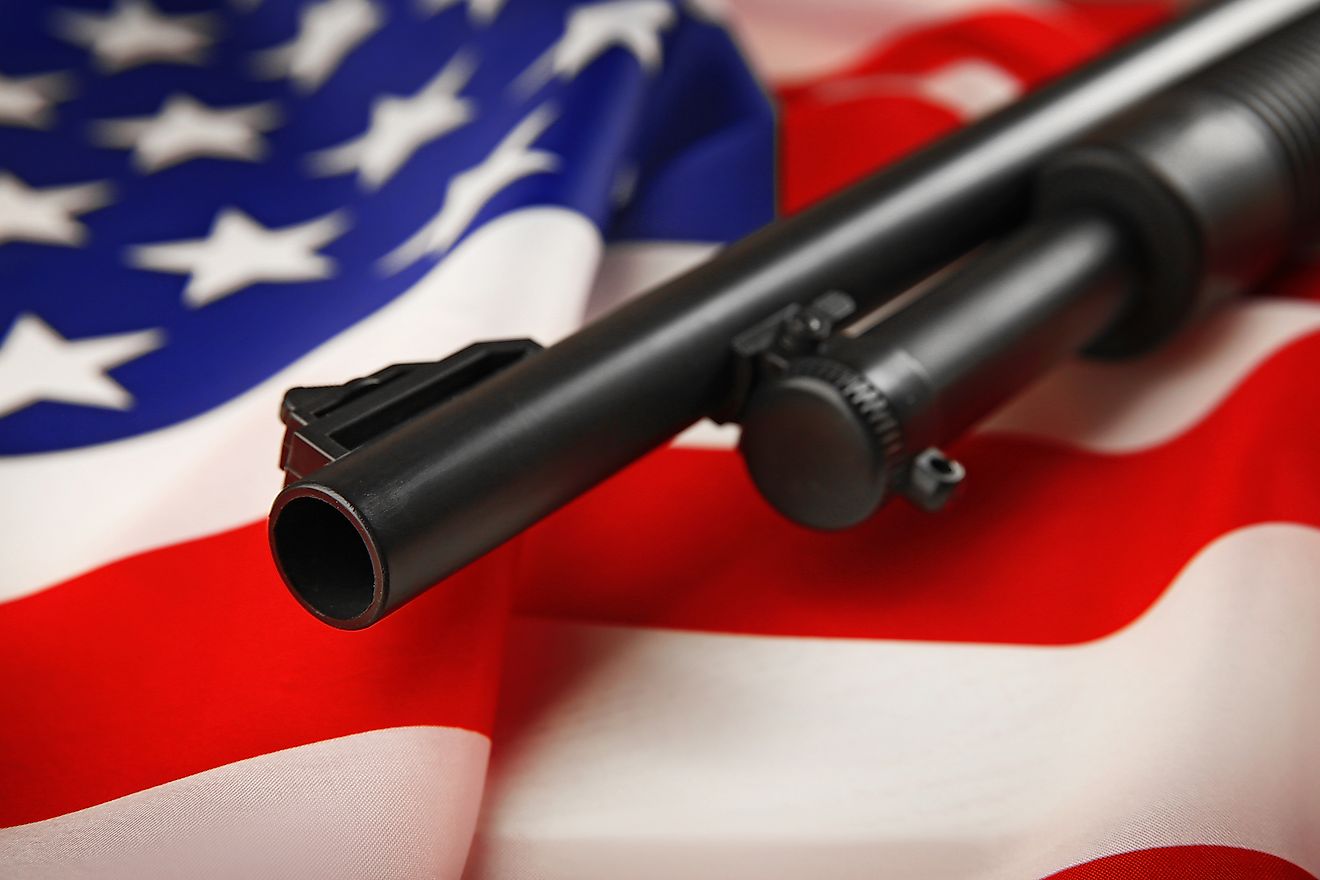
- Some states in the US allow you to carry a gun openly in public, others only allow a concealed weapon, and there are many variations on whether you need a permit or not, and how you can carry your weapon.
- A majority of Americans want stricter gun laws across the country, and a ban on assault rifles.
- A vast majority of Americans want to see more money spent on mental health for youth in the country, and feel this will help to avoid gun violence.
Guns. Some people must have them, and others hate them. Guns in the US make mass shootings come to mind, hunting, and defensive ranchers attempting to keep coyotes from attacking their cattle. Cowboy life and the settling of the West reign for some in the mythology surrounding guns. For others, it is the brutal street life of gang wars taking place before our very eyes.
Today, there is estimated to be more than one gun for every person in the US. Not everyone necessarily wants to own one however, and people’s views on weapons change considerably from state to state.
According to Gallup.com, only between 35% and 45% of Americans actually have a gun in their home. About 60% of people who own a gun have it for personal safety, and the rest generally have one for hunting (40%).
Guns And US History
Why are guns so important to Americans? History has given these weapons a significant role in American identity. When Europeans first spread across the country to settle the land, the west was truly wild. People had guns to protect themselves from dangerous wildlife, like bears. They also used guns to ward off bandits and thieves, as well as Native peoples who did not want Europeans on their land. A gun in the west was a wise thing to have.
When the American Revolution erupted in 1775, soldiers from the colonies used their guns to gain people independence from Britain. Guns became associated with ideas of freedom. And when the Civil War erupted about 100 years later in 1886, many people felt they needed a gun to protect themselves from their neighbors, who might not agree with them politically, and could be ready to pull the trigger. Soon-to-become-Americans worked together during this time, but some also began the mantra of “trust no one”.
Some of these feelings about the necessity of guns have trickled down to people today in the US. Many believe that guns are not something only law enforcement officers should have but also regular people, and that the right to bear arms keeps them safe.
Past Rules
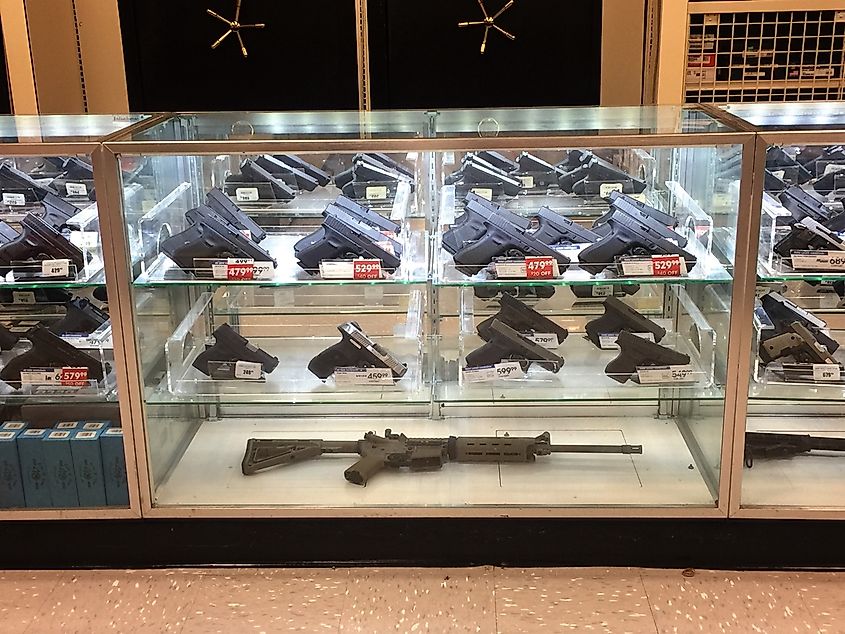
According to SmithsonianMag.com, our modern day visions of the American West are not true to history, however. Places like Tombstone, immortalized in Western movies, had much more restrictive laws around carrying guns in public in the 1880s than they actually have today. Laws around gun control were passed at a local level, not by Congress. People were not allowed to carry any kind of weapon around town. You could only carry these items outside the town borders, or inside your own home. The streets were off limits for guns and knives.
Historians retell how, when you entered a town, you had to check your weapons with a law enforcement officer. You would then be given a token. It was like a coat check. You kept track of this token, and traded it in for your weapons when you decided to leave town. Can you imagine doing this today?
There are now different laws in each state regarding the types of guns you can own, and how you can handle them. Here is a look at some, and how they work.
Open Carry States
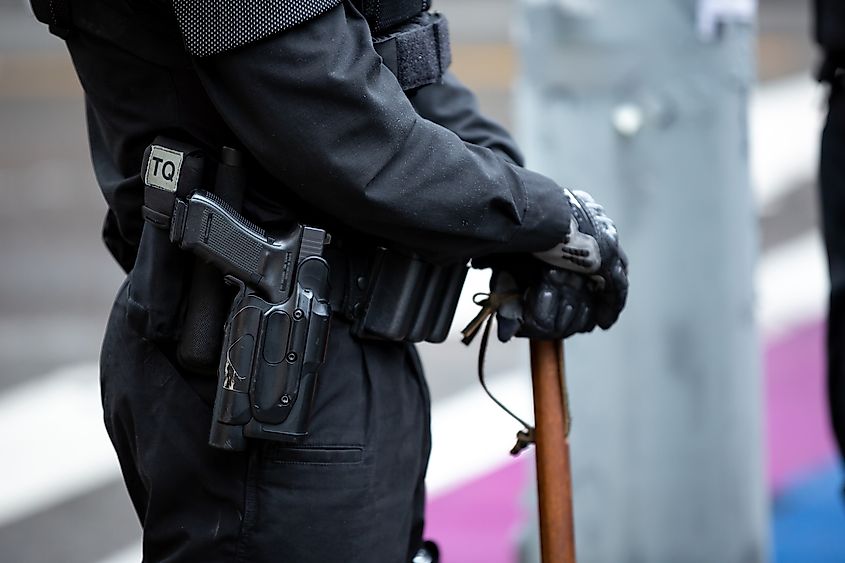
Today in the US, some states allow you to carry a gun, but it must be easily visible. This is called “open carry”. There is no federal law that deals with open-carry or concealed weapon permits, and so this is left up to each state to decide.
As of 2019, you can open carry a gun in Alabama, Alaska, Arizona, Colorado, Connecticut, Delaware, Georgia, Hawaii, Idaho, Indiana (long guns only), Iowa (handgun with a valid license), Kansas, Kentucky, Louisiana (done responsibly), Maine, Maryland (with a permit), Massachusetts, Michigan, Minnesota, Mississippi, Missouri, Montana, Nebraska, Nevada, New Hampshire, New Jersey, New Mexico, North Carolina, North Dakota, Ohio, Oklahoma, Pennsylvania, South Carolina (long guns only), South Dakota, Utah, Vermont, Virginia, West Virginia, Wisconsin, and Wyoming.
The carrying of guns in public is complicated. Each state has different laws around how a gun can be carried openly. Some require a permit or license to do so and others do not. In some states you can openly carry a gun but only certain types of guns, and in others only if the gun isn’t loaded. Some states have laws about how you can show your gun, ie, you cannot hold it in a menacing way and point it at someone.
If you are curious about what is permitted in a certain state, you should look up that state specifically.
Concealed Carry States
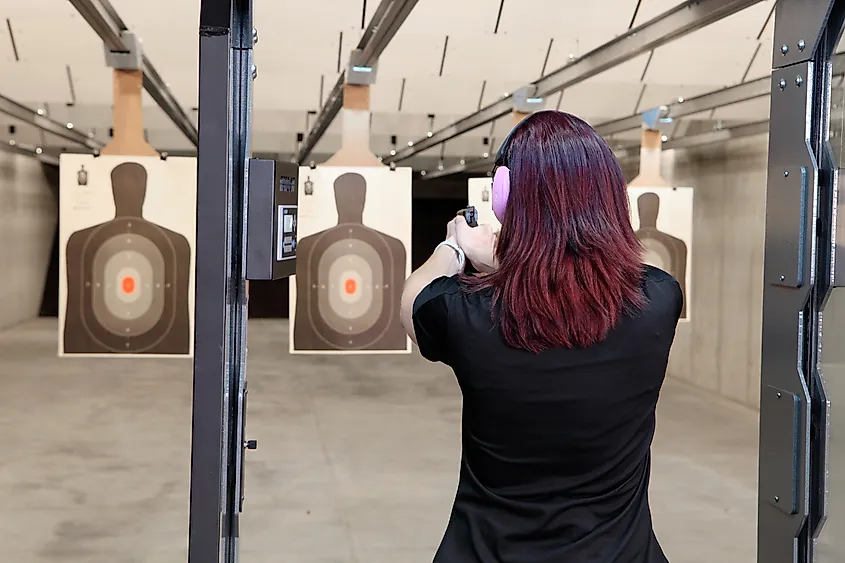
Basically, every state in the US allows you to carry a gun in a concealed, or hidden, way, in some form or fashion. As many as 35 states require you to get a state-issued permit in order to carry your gun in public. Only about 15 states let you carry a gun in public without any permit. These include Alaska, Arizona, Idaho, Kansas, Kentucky, Maine, Mississippi, Missouri, New Hampshire, North Dakota, Oklahoma, South Dakota, Vermont, West Virginia, and Wyoming.
In some states, authorities granting permits can decide to deny someone a permit, based on their character, or some other factor. Some areas like Missouri also require you to provide a good reason for needing a gun. Almost every state has restrictions on where you can carry a gun in public. You cannot lawfully carry one into a hospital or a school, for example, even though people do it.
For a complete list of rules around concealed carry in the US, click here.
Gun Control
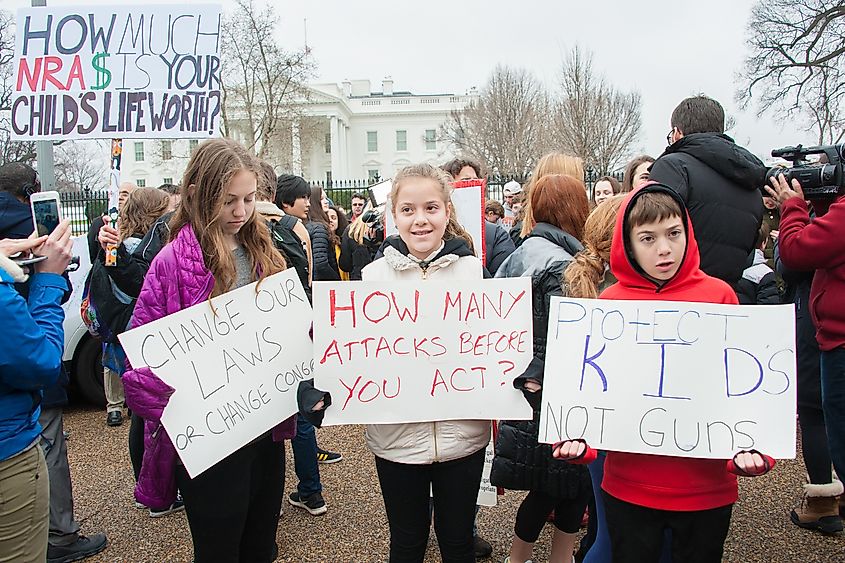
The number of people killed by guns in the US now is lower than it was in the 1970s. This being said, mass shootings in schools, churches, and at other public gatherings has made many Americans feel there should be more control over the violence. A recent Gallup poll showed that many people polled in the US (64%) want stricter laws to govern firearms. A majority of people want the laws that govern the sale of guns to be stricter. The majority (61%) also want a ban on the possession, manufacturing and sale of assault rifles. People say that extremist views online, and easy access to guns have contributed to the gun violence in the country.
Almost 80% of people want to increase the government spending for mental health programs for young people, as well as for training police officers. They also want increased criminal penalties for those who buy a gun for someone who didn’t pass an initial background check.
Guns will continue to be a part of American culture going into the future, but exactly how that will be, may change.











